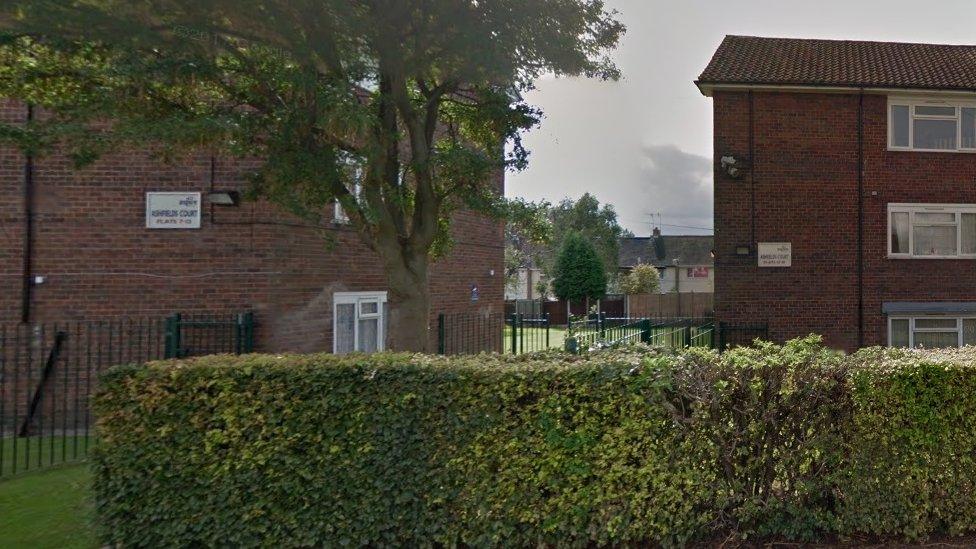BBC Three Drugs Map of Britain: Monkey Dust
- Published
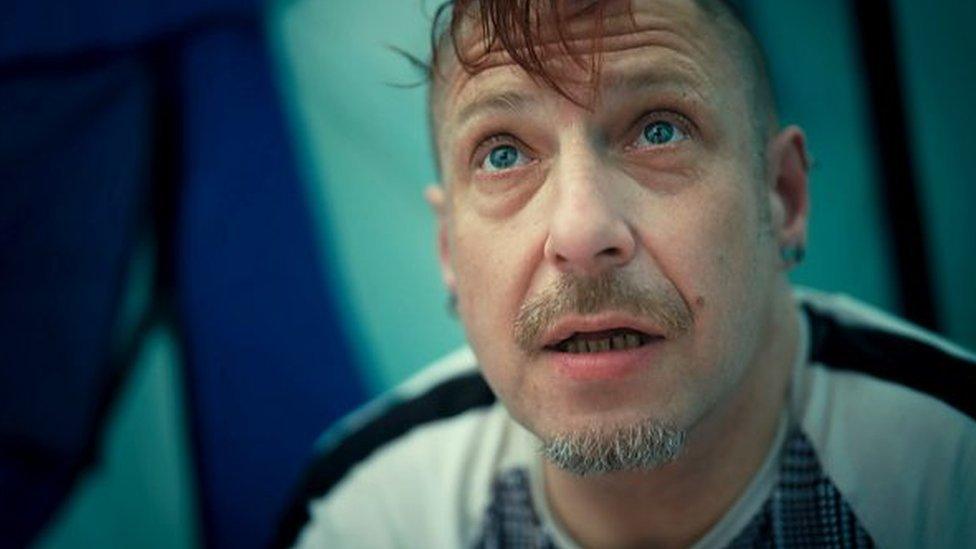
Paul ended up living in a tent after using monkey dust
A man has described how everything in his life "just disappeared" when he became addicted to monkey dust.
Paul told BBC Three's Drugs Map of Britain he "must have gone round to every dust dealer" in Stoke-on-Trent after first trying it seven years ago.
Paul is among drug users who tell their story in an episode looking at how the former legal high has taken hold in the city.
The city council has received additional funding to provide support.
It comes amid calls for the synthetic drug to be reclassified from Class B to Class A, to increase penalties for dealers.
Jack Brereton, the Conservative MP for Stoke-on-Trent South, has led these calls, saying the "hallucinogenic and dangerous" substance is too cheaply and readily available.
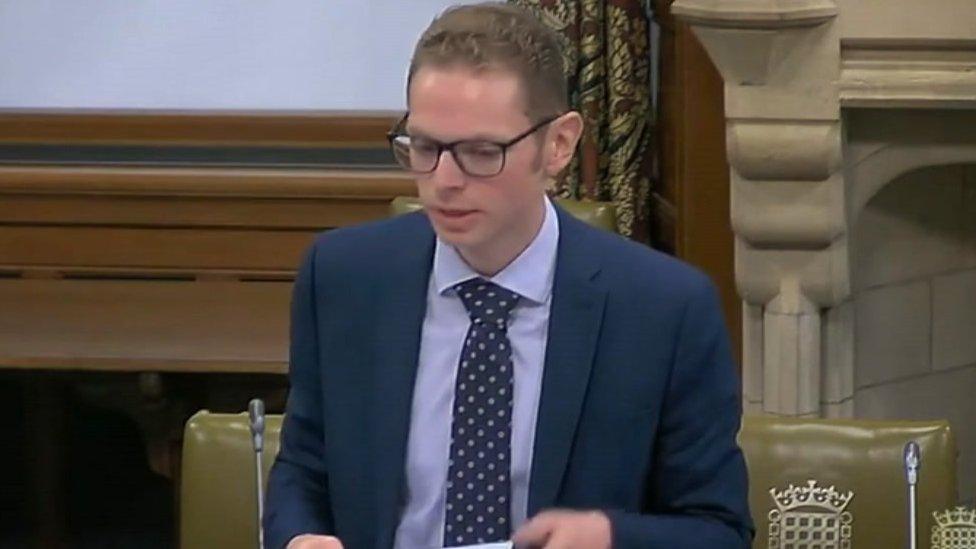
MP Jack Brereton said monkey dust was dangerous and too readily available
The BBC documentary was filmed over six months, with Paul telling film-makers he had used heroin but was working to get it under control.
He said he then wanted to continue such efforts and also overcome an addiction to monkey dust and get "clean".
Monkey dust, a psychoactive substance, was highly addictive, he said.
Before taking the drug, he explained, he had "everything", was happy, and had owned a home for 18 years.
"Then everything just disappeared for me - slowly, like; but it's all gone," he said. "I could see it going but I couldn't do nothing about it. It can happen off one pipe."

Community worker Kate said some monkey dust users arriving at a shelter had not eaten for several days
Paul was living in a tent when first filmed but weeks later had secured accommodation, saying he had managed to "cut down quite a lot" on monkey dust while away from other users.
However, the audience is shown an ongoing struggle to avoid the drug.

BBC Three Drugs Map of Britain: Monkey Dust on BBC iPlayer (UK Only)

Kate, a charity worker in Stoke-on-Trent, said she was seeing a lot of people suffering with psychosis that may be related to monkey dust use.
"People are not entirely in touch with reality," she said. "One of the bigger issues [is] people's behaviour. Monkey dust is quite unpredictable."
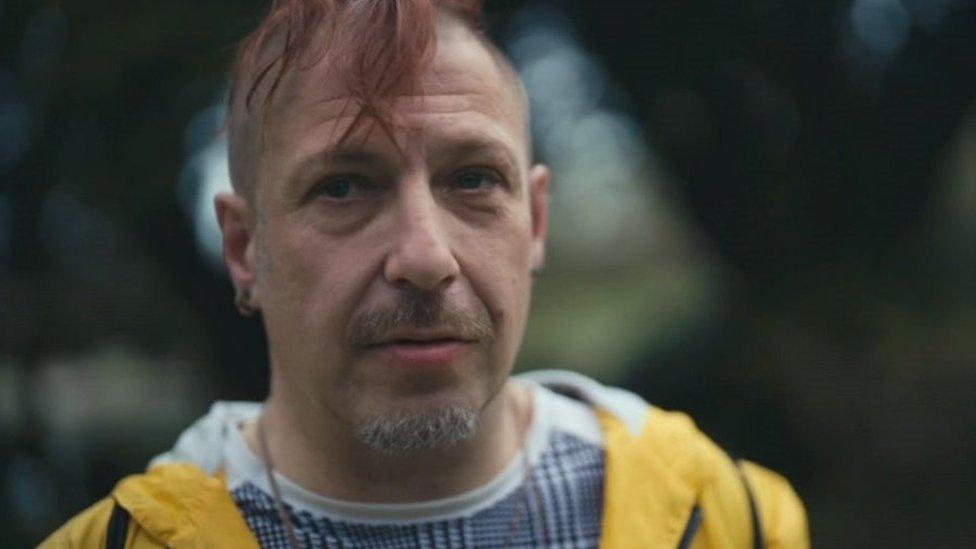
Paul said he was trying to get back his life
Adam, who works with drug users, was filmed at a meeting about monkey dust which he said was a "big problem" in the city.
He said monkey dust was initially among several legal highs people were trying but it was the one that "took off".
"And all the rest of them stopped because nobody wanted them, everybody wanted that and it's grown and grown and grown and now it is a city-wide epidemic," Adam said.
He added that reclassifying the drug to Class A would put a lot of people off selling it because they could end up with a long prison sentence.
"You won't meet many people in Stoke-On-Trent now who haven't been affected in some way - like a family member or a friend or a friend's son," he said.
Sophie, who runs a rehabilitation programme, told the meeting: "Drugs like heroin and crack, you know what you're dealing with and that's bad enough, but this stuff, people are throwing themselves off buildings - I just think it's a different level of scary."
If you are affected by any of the issues raised in this story, support and advice is available via BBC Action Line.

Follow BBC West Midlands on Facebook, external, X, external and Instagram, external. Send your story ideas to: newsonline.westmidlands@bbc.co.uk, external
Related topics
- Published10 September 2023
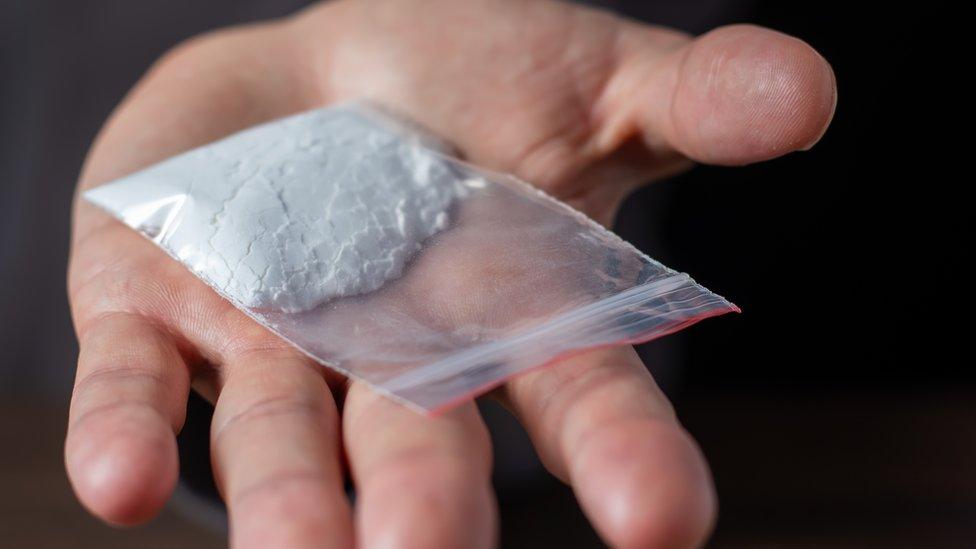
- Published28 July 2023
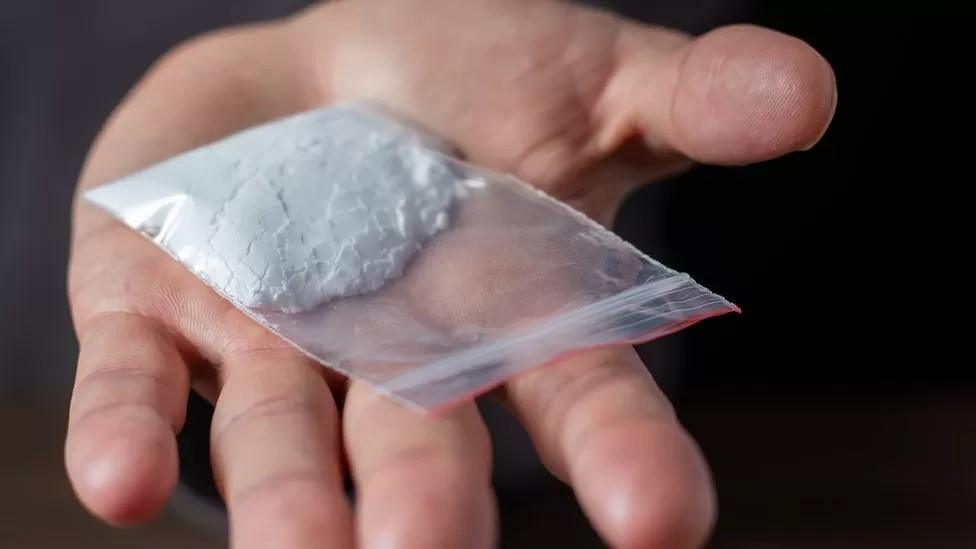
- Published26 June 2023
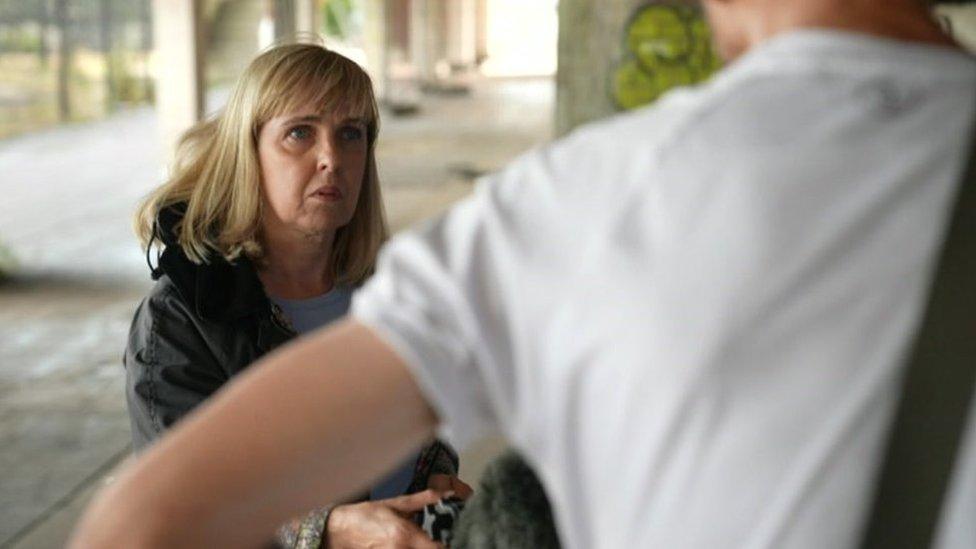
- Published11 May 2023
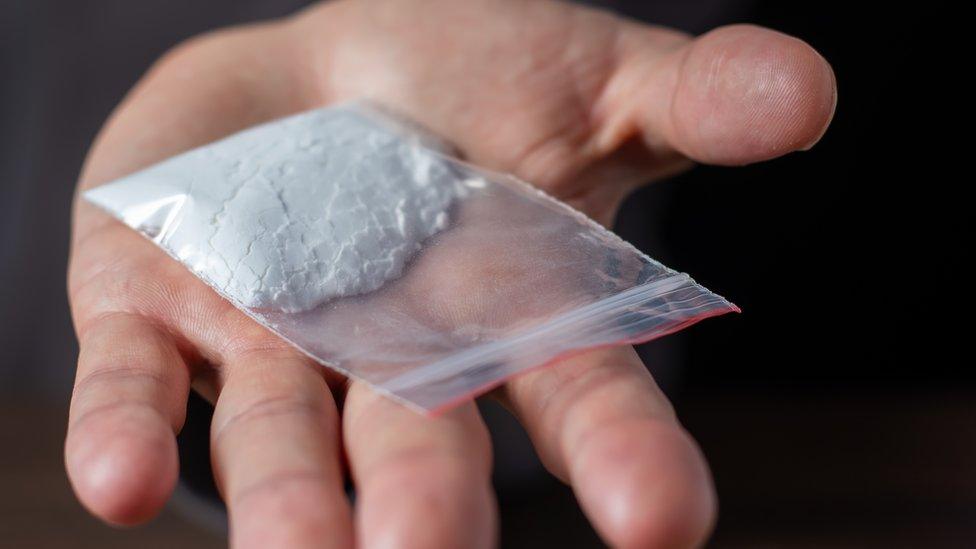
- Published14 October 2018
